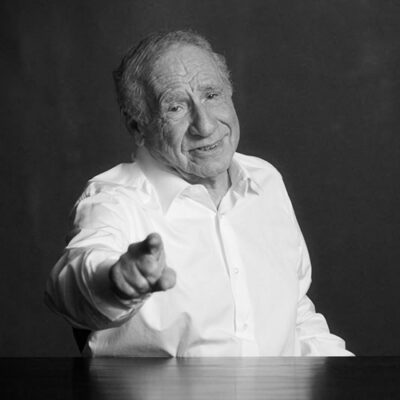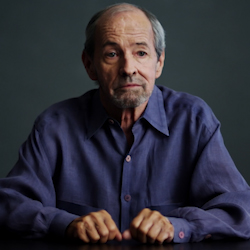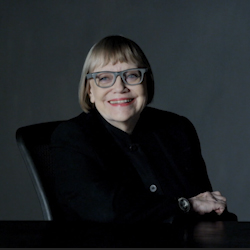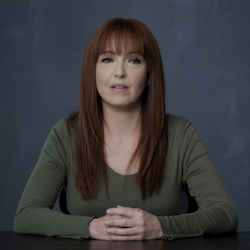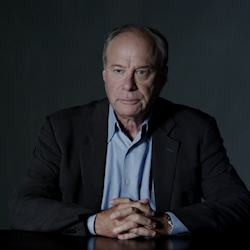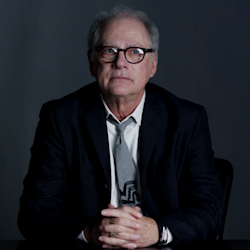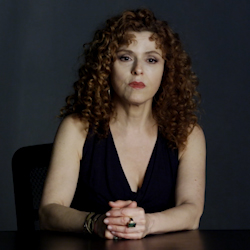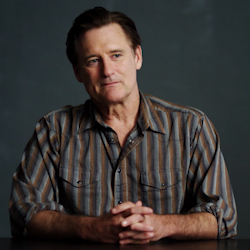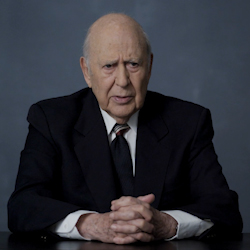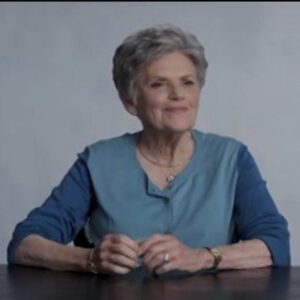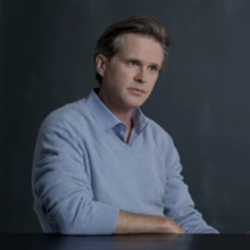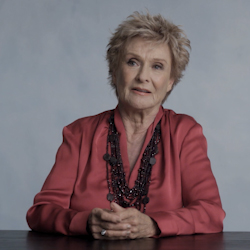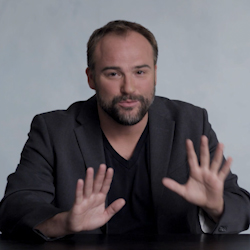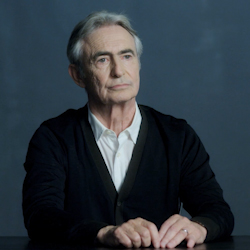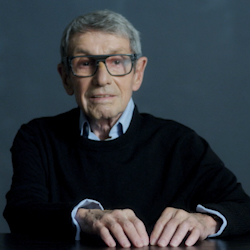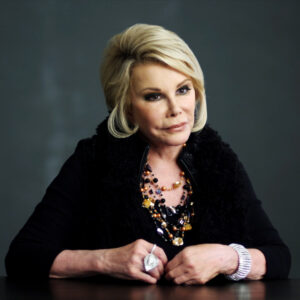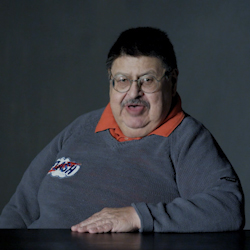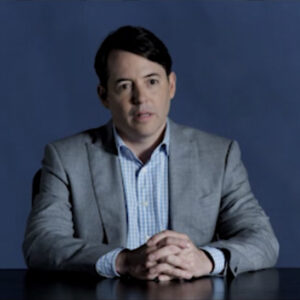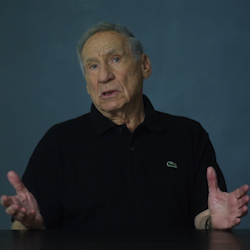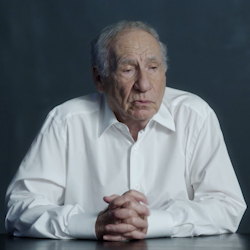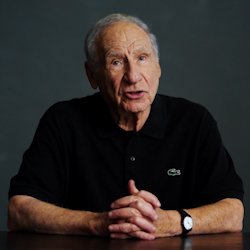Interviewer: So tell me how you met Mel.
Dick Van Patten: How I met Mel Brooks? Well, it was all through Carl Reiner. What happened? You met with The Dick Van Dyke Show. When The Dick Van Dyke Show went off the air, Carl Reiner wrote and produced a new Dick Van Dyke Show. Most people don’t know about it because there wasn’t on that long. So I had to go up and read for Carl Reiner to play Dick Van Dyke’s boss. So I read. And Carl Reiner said, You’ve got the part. I like you. So then we worked together every week on the new Dick Van Dyke show. Hope Lange played his wife on that show. And so he said to me, he said, You have a tennis court at your house, don’t you? And I said, yes. He said, you know, every Sunday, my friends and I, we rent a court and we play. Would it be all right if we came over to your house? You include you and we all play together. I said, sure. Come over Sunday about 12:00. So he comes over that Sunday. He brings our Alan Alda, gene Wilder. Gene Wilder’s wife. And Mel Brooks and all these people. I was I couldn’t get over it. So then we played every Sunday at one o’clock we played. And one day we were playing. Carl Reinerwas playing with Mel. And I was playing with Alan Alda. And then during the tennis match, Mel Brooks Korby over recent Dick, he said, I’m doing a new series, TV series called When Things Were Rotten. It’s all about Robin Hood and it’s going to be like a farce comedy. He said, would you like to to play the. Oh.
Interviewer: Friar Tuck.
Dick Van Patten: Friar Tuck!
Interviewer: He said. He said, would you pick it up from would you like to play for Friar?
Dick Van Patten: He said to me, said, Dick, would you like to play Friar Tuck? I said, Yeah I would. I said isn’t he a big fat man. He said, Yes, I know you’re not fat. He said, but you have a fat man’s face. And he said, if we panted you and everything, you would look like a fat person. So I said, okay. So I do the show. I figure it’s going to run for years, you know, Mel Brooks is so big. And it was very funny show called When Things Were Rotten. It was a farce comedy about Robinhood. And I was Friar Tuck and I thought it would go on for years and it was canceled after 13 weeks. I don’t know why it was such a funny show was so good. They were standing in line to see Mel Brooks movies and he gives them free Mel Brooks on television and they cancel it. So I was really surprised. But anyway, while I was doing it, Mel Brooks, I got friendly with Mel Brooks and then he went he did movies. He always put me in one of his movies. I was in about three or four of them, Spaceballs and High Anxiety.
Interviewer: So let’s go movie by movie. The first one you did was High Anxiety.
Dick Van Patten: The first movie I did was High Anxiety with Cloris Leachman and Harvey Korman and it was so much fun working for Mel Brooks. He had this laughing all the time. You’d work eight hours a day and four of those hours you’d be laughing at mel Brooks. He’s a truly funny man, as you know. Probably. Yeah.
Interviewer: What’s the difference? Well, how would you classify the difference between other comedy directors and Mel?
Dick Van Patten: That’s a good question. How I would say the difference between Mel Brooks comedy and other people’s comedy. I think Mel Brooks is just a natural comedy. It comes out of him. It isn’t prepared or anything. He just thinks funny. And he comes to Williamsburg, Brooklyn, in a very tough section. And he made it on pure talent. He started on this should the Sid Caesar show, as you know, and the other writers on the Sid Caesar show were Woody Allen and Neil Simon, they all became big, big stars. They were the greatest writers of all. And it was a pleasure working for him. I tell you, he’s been wonderful to me.
Interviewer: And so from those tennis games, you’ve you see him almost every week.
Dick Van Patten: Yes. But those have been canceled. Here’s what happened. He lost his wife. He took that. You know, he was married, Anne Bancroft. He was crushed by that. He still you can’t even mention her name in front of him, he’d get so upset. But when when she passed away, that was the end of the tennis. He just didn’t want to do any moves, like a reminder her. You know, we used to play doubles and everything. So it ended with that. But he’s taking it very seriously. Oh, he’s very upset, as he should be. They were very happily married. They were happy couple.
Interviewer: Do you remember when you were doing the movies, was there any particular direction he would give you or he would just let everybody go do what they did?
Dick Van Patten: Now, when he was directing the movie, he would let you do what you wanted to do. And if he was satisfied with that, he would let it go and not touch it. But then sometimes he would give you some aid in what you were doing. And it was always a big help. I mean, any time he suggested something to you, put it in your back pocket and keep it. It never misses. And he was always right. I’ve been around a long time as a child actor, but he’s the best director I’ve ever worked with. Really. Mm hmm.
Interviewer: But why? Like, what would you say is.
Dick Van Patten: He’s just a naturally funny man and then he’s so smart on top of just not being funny. He’s very smart. And so when he tells you, you know, they say you you directors shouldn’t direct you too much. And each time he gives you any help, it’s always a big help. It really is always better than what you were doing. He never misses.
Interviewer: To you, what’s the difference between Mel onscreen and Mel on the set directing then Mel on the weekend?
Dick Van Patten: Well, yes, far as we know, he’s so funny on the screen and everything, but when he’s directing and everything, he gets a little serious. But he’s still funny. Keeps you laughing. So it’s the combination of his brain and his humor. He’s really got both. He’s the best.
Interviewer: And then off screen?
Dick Van Patten: Off screen I have lunch with him a few times a week and he’s always very nice to people when they come up and talk to him and ask him for his autograph. He’s bothered all day long. People go crazy when they see him. They get all excited. And he’s always very nice to them. And I know he makes their day because he’s just he’s very nice.
Interviewer: And tell us about how did you switch from tennis to You should tell us you go to the racetrack together.
Dick Van Patten: Oh, you know that. OK. I wasn’t go to say it. All right. Yeah. We get we meet every Wednesday, Thursday, Friday and Saturday and Sunday. No, Thursday, four days away, we meet for lunch at the racetrack. And he’s a very rich, man. But he gets so excited about the races. If he loses, he gets all upset and he’s yelling and screaming during the race. He’s very excitable. And it’s funny because he’s so rich, he doesn’t really need the money, but he gets all. I think it’s a competitive thing with him. He wants to pick the winners. You know, it’s it’s more of the more than the money that’s that’s more important to him. That I pick the winner. He likes that.
Interviewer: Did that also come through when you were playing tennis? Just very competitive.
Dick Van Patten: He was very competitive. I remember one day he got so mad he threw his racquet up in the air and then his best friend, Carl Reiner, came over to him and Carl said to him don’t ever do that again. You did that. And you could see that he obeyed Carl and he picked up the racquet. And I’m sorry. I’m sorry. They are the best friends. They’re so close. He and Carl, very close. But we go to the races four times a week and it’s fun and he’s always great.
Interviewer: Was Carl directing the new Dick Van Dyke Show?
Dick Van Patten: The Dick Van. Yes. He directed and produced it.
Interviewer: So and what would you say is a difference between like Carl directing and Mel directing?
Dick Van Patten: Carl is it’s more cerebral. It’s a bit more room. It’s a more intellectual directing, whereas Mel Brooks is more of a comedy directing. There’s a difference. And they’re both wonderful at what they do, but they are different. You’re right. What do you call when Carl is a little more like intellectual about it? Not as much humorous as the use the intelligence about it. And it was both wonderful working for both of them. They’ve been so good to me. I appreciate it.
Interviewer: And on for example, on High Anxiety. Do you recall how he. I mean, sort of let the character characters develop. He said that he, for example, let Cloris Leachman just sort of do.
Dick Van Patten: Do her own thing and then then he, if he likes it, just lets it be. Doesn’t doesn’t touch it, you know. And if he does touch it, it’s always for the better. I think.
Interviewer: Did I step on that at the beginning?
Dick Van Patten: Oh, I didn’t answer you, either.
Interviewer: No it’s my fault. Did I step on that? Yeah. If you could just repeat that. If he likes it. No, that’s my fault. If he likes it, he just lets you go. If not.
Dick Van Patten: Exactly. And if he does stop you and change it a little bit it’s always for the better. He never misses. He he’s something boy. And I’ve worked for everybody and he’s the best.
Interviewer: As the films went on, I mean, from High Anxiety to the. Let’s say that, like Spaceballs wasn’t as big a hit is as High Anxiety. Did you feel like the audience taste changed or what do you think it was?
Dick Van Patten: WithHigh Anxiety more adults come up to me and say how much they love the picture. With Spaceballs. Kids come up to me children, and they love that. That that that must have been made for kids because they’re always. Anybodythat tells me about Spaceballs is usually a child and High Anxiety is usually a grown-Up that tells me how much they liked.
Interviewer: And what what can you tell me about? You see him so often, I mean, would you recall anything he’s told you about growing up or the early year, his early years? You know, because he, he’d have a lot of struggle.
Dick Van Patten: I see Carl Reiner four days a week and we get to talk and everything. And he told me that he came from Williamsburg, Brooklyn. It’s a rough section. I come from Queens and that’s a tough section in Williamsburg and he made it on pure talent. He started with the Sid Caesar show and he just did it on pure talent. How he came out of that section with no real education or anything? Just just pure talent? He really has it.
Interviewer: When when do you remember being aware of him from the verrier like when he did The Producers and all that?
Dick Van Patten: Oh, yes. I was a big fan of Mel Brooks, so that’s why I was so excited to meet him when Carl Reiner brought him over to my house and everything.
Interviewer: But you never I don’t think you did. We checked. You didn’t do any guest spots on Get Smart, did you? I don’t.
Dick Van Patten: Oh, sure I did. Oh, no, wait a minute. Dawn Adams was one of my best friends and I was on the call. I of course, I was on that. I played Sergeant Higginbottom. That’s that’s the part that I played. I was on Get Smart a lot. And it was such a. Dawn Adams, was one of my pals. He was good to me, too. Mel Brooks, who’s the writer of that of Get Smart.
Interviewer: Rright.
Dick Van Patten: Everything he does is good.
Interviewer: And have you been on sets with him on on whether it was High Anxiety or Spaceballs or.
Dick Van Patten: When Things Were Rotten.
Interviewer: When Things Were Rotten or Men In Tights.
Dick Van Patten: Men In Tights, yeah.
Interviewer: When have there been other actors who, for lack of a better phrase, don’t get that the speed, the rhythm of the comedy that you know, you obviously got it. He kept using you but.
Dick Van Patten: He helps you along. He’s very patient. And if somebody doesn’t have quite what he wants, he gets it out of them. He dies. He’s he has a knack of just really directing you into the right spot. He really does.
Interviewer: And you don’t think as an actor that it’s a tough thing to. I would think with that kind of comedy, you either get it or you. I mean, is that something you can learn? That kind of.
Dick Van Patten: Whether you can learn his kind of comedy. I think it’s a natural thing that just comes out of him and it hits everybody. Hits everybody in every level, children or adults. He’s unique, I think. I really do think he’s unique. There’s nobody like him.
Interviewer: Well, the thing that I noticed is that the comedy, his comedy, it doesn’t come out of actually Kali’s comedy, especially with The Dick Van Dyke Show, really is more situational.
Dick Van Patten: Yes.
Interviewer: It’s more based in everyday stuff, whereas Mels is almost surrealistic.
Dick Van Patten: Yes, that’s very that’s a good point. Carl’s comedy is that way. Yes. And Mel Brooks is different. It’s a different kind of comedy. They’re very close friends, really, cause they see each other all the time. They they they both of the fights and they watched this fight the other night. And it was a terrible decision. There’s a fight between Bradley and forgot and now they won’t watch the fights anymore. They’re so upset about that decision. And it was a terrible decision. They’re right. They dont watch the fights anymore.
Interviewer: So he use to come over with Anne and.
Dick Van Patten: Anne and Alan Alda and Gene Wilder and Gene Wilder’s wife.
Interviewer: Are you talking about when he’s married to Gilda Radner?
Dick Van Patten: Gilda Radner, she was there every week.
Interviewer: Okay. So here, let’s pick that up. Why don’t you pick that up from the.
Dick Van Patten: Whenever Mel Brooks will come over to the house to play tennis every Sunday afternoon at 12:00. And he would bring all his friends. He would bring Alan Alda, Mel Brooks, Gene Wilder.
Interviewer: No start againt because you said Mel. You used his name. Start over again where you said he would come over every. Mel and Anne would come over and they’d bring.
Dick Van Patten: No Carl Reiner will bring them.
Interviewer: Oh, okay. Oh, I’m sorry. You didn’t say Carl. So start off by saying Carl Reiner would bring.
Dick Van Patten: Every Sunday we had this tennis game in my house at twelve o’clock and went on for years. And Carl Reiner would come over and he would bring his friends and his friends were Allen Alda, Mel Brooks, Gene Wilder, Gene Wilder’s wife, Gilda Radner. And also there was an artistic director, Terry Marsh and his wife. And that was the crew. And we played every Sunday until Anne passed away. That ended it.
Interviewer: And any particular anecdotes you can remember about Mel on the set or anything like that?
Dick Van Patten: Well, he was very competitive. When he didn’t win a tennis he would get a little upset. He’s such a genius he’s so used to winning at everything because he’s so good. So when he does lose he can’t believe it, you know. So he was very competitive on the tennis court, but very funny. He would always be having you laugh while you hitting the ball. He would say something funny.
Interviewer: On the set doing the movies. Is it a question of. For the most part, he really asked for a lot of takes or no, it was pretty.
Dick Van Patten No, he would do a lot of takes. He wouldn’t just shoot one take. No, he would do a lot. Until he got just what he wanted. Exactly. It had to be exactly the way he wanted it.
Interviewer: Was it a little frustrating on Spaceballs because so many special effects?
Dick Van Patten: On Spaceballs, it wasn’t confusing because of all the special effects. We did it out in the Columbia ranch out there. And they were real wild animals. It was very wild out there. But it was fun shooting there.
Interviewer: And in High Anxiety, you have a particularly good scene with Cloris.
Dick Van Patten Oh, yes. Cause Leachman, when I worked with her, she was very funny and very unique. She’s very good. She was nice. The first scene we did in High Anxiety was the set, the scene around the table leating. And Cloris was so funny. And Mel was laughing. She did it her way. And he loved us. He loved it.
Interviewer: And Harvey Korman, too.
Dick Van Patten Yes. Yeah. He used Harvey a I used Harvey all the time. Right.
Interviewer: Well, really with you, too. I mean, you and Harvey and Madeline Kahn. It’s kind of a little bit of a stock company he had.
Dick Van Patten: Yes. I was lucky to be in that stock company.
Interviewer: Yeah. I mean, basically, he would just call up and say, I got something for you?
Dick Van Patten: Yeah. Although, yes, usually he didthat. I’ve got something for you. But there was one part, he said Dickie, you’re going to have to read for this. I’m almost sure you’re right for it. But I want you to read for you. Don’t mind, do you? I said no. I like to read for a part. I’m happy then. You know, if you’re happy that. You think it’s good. I feel good. So I was a what was. It was High Anxiety, he wanted me to read for it. Yeah. And I read for it and he said, perfect. Okay. You’ve got it.
Interviewer: So you never even when you got the first thing you did with him was When Things Were Rotten.
Dick Van Patten: Yes, the TV show, right.
Interviewer: But you didn’t even have to audition for that.
Dick Van Patten: No. On the tennis court. He said you are you have a fat man’s face. You said, I know you’re not fat, but you have a fat man’s face. I realized. Anyway. Can I tell you One funny thing. Anne and Mel were playing. We were playing doubles. And my my son walked in. One of my son, Nel, came into the court and he she shouted over to Anne, I saw your movie yesterday, and that’s all he said. So Mel stopped playing. He said, well, don’t stop there. Tell her how good she was in it. So he said, Oh, you were wonderful. I just forgot. But he was so crazy about Anne, he really was. And she about him.
Interviewer: You were seeing that on High Anxiety, he asked you to audition. Tell us about auditioning for him. High Anxiety, that you’d never.
Dick Van Patten: I never had to audition for him.
Interviewer: I’m sorry. I think I stepped on your line. Go ahead.
Dick Van Patten: I never had to audition for him. But once Mel said to me, he called me up and he said, don’t get insulted. I’m doing a new movie and I would like you to to read for it. Do you mind? I said no, I’d be happy to read for it. I’d be happy to. And so I went in and I read and he said wowyou’ve got the part. But other than that, all the other parts he just gave me, you know, without reading.
Interviewer: Do you have a particularly favorite movie of his.
Dick Van Patten: High Anxiety. Oh, I think that was very funny.
Interviewer: Did you mind Blazing Saddles? Which one do you mean?
Dick Van Patten: High Anxiety.
Interviewer: I’m sorry.
Dick Van Patten: I think this is my favorite movie of his was the one that I was in too, High Anxiety. I think that was very funny. Really good.
Interviewer: Great. I think we’re good.
Dick Van Patten: Oh good. I hope I gave you everything.
Interviewer: Yeah, absolutely.
Dick Van Patten: Oh good.
Interviewer: Thank you.
Dick Van Patten: All right.
Interviewer: Great.
Dick Van Patten: Thank you.

